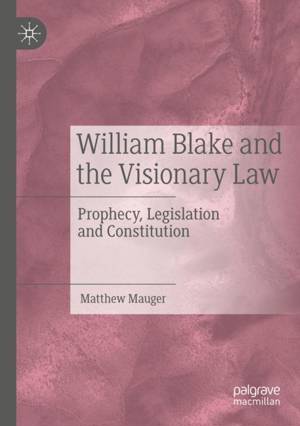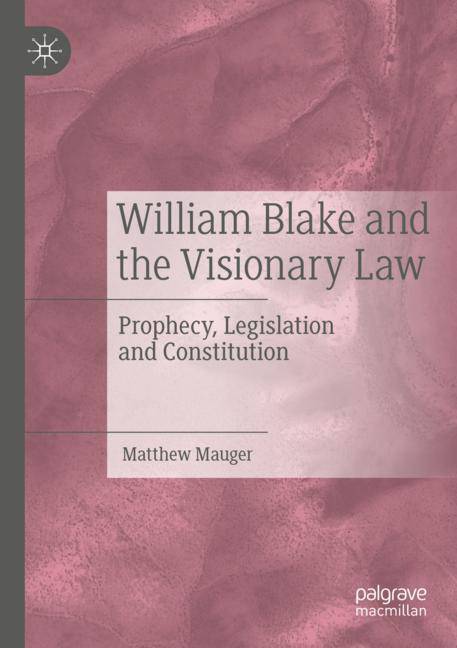
Bedankt voor het vertrouwen het afgelopen jaar! Om jou te bedanken bieden we GRATIS verzending (in België) aan op alles gedurende de hele maand januari.
- Afhalen na 1 uur in een winkel met voorraad
- In januari gratis thuislevering in België
- Ruim aanbod met 7 miljoen producten
Bedankt voor het vertrouwen het afgelopen jaar! Om jou te bedanken bieden we GRATIS verzending (in België) aan op alles gedurende de hele maand januari.
- Afhalen na 1 uur in een winkel met voorraad
- In januari gratis thuislevering in België
- Ruim aanbod met 7 miljoen producten
Zoeken
William Blake and the Visionary Law
Prophecy, Legislation and Constitution
Matthew Mauger
Paperback | Engels
€ 160,45
+ 320 punten
Uitvoering
Omschrijving
This book examines the difficult relationship between individual intellectual freedom and the legal structures which govern human societies in William Blake's works, showing that this tension carries a political urgency that has not yet been recognised by scholars in the field. In doing so, it offers a new approach to Blake's corpus that builds on the literary and cultural historical work of recent decades. Blake's pronouncements about law may often sound biblical in tone; but this book argues that they directly address (and are informed by) eighteenth-century legal debates concerning the origin of the English common law, the autonomy of the judicature, the increasing legislative role of Parliament, and the emergence of the notions of constitutionalism and natural rights. Through a study of his illuminated books, manuscript works, notebook drafts and annotations, this study considers Blake's understanding that law is both integral to humanity itself and a core component of its potential fulfilment of the 'Human Form Divine'.
Specificaties
Betrokkenen
- Auteur(s):
- Uitgeverij:
Inhoud
- Aantal bladzijden:
- 231
- Taal:
- Engels
Eigenschappen
- Productcode (EAN):
- 9783031377259
- Verschijningsdatum:
- 15/09/2024
- Uitvoering:
- Paperback
- Afmetingen:
- 148 mm x 13 mm
- Gewicht:
- 326 g

Alleen bij Standaard Boekhandel
+ 320 punten op je klantenkaart van Standaard Boekhandel
Beoordelingen
We publiceren alleen reviews die voldoen aan de voorwaarden voor reviews. Bekijk onze voorwaarden voor reviews.









